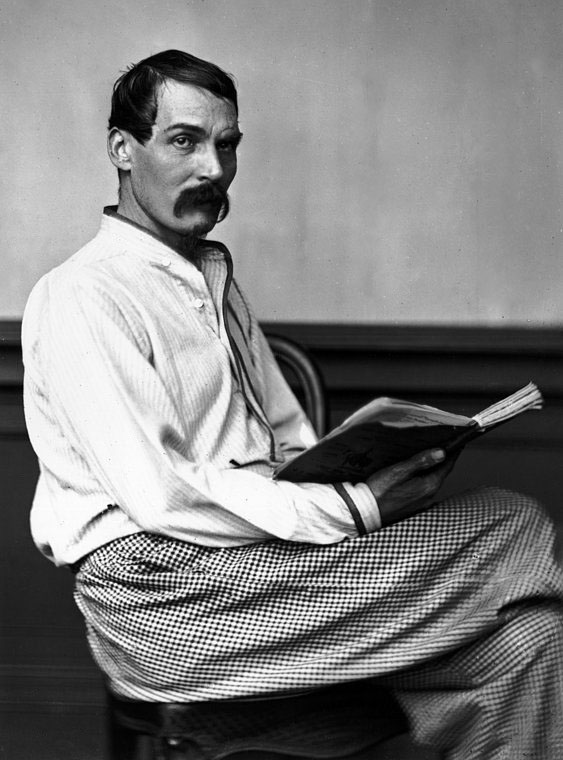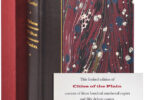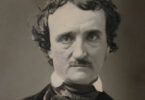
Richard Francis Burton was born March 19th, 1821, in Torquay, Devonshire, England to a Lieutenant Colonel and an heiress. Burton traveled extensively with his family through France, Italy, and England before being sent to Trinity College in Oxford in 1840. He was an adventurous and rebellious youth who loved to learn but balked at formal education, immersing himself in such studies as falconry and fencing. He even challenged a fellow student to a duel for making fun of his impressive mustache! In 1842 Burton was expelled from the College for attending a Steeplechase and refusing to apologize for his disobedience to school rules.
After his expulsion, he enlisted in the army of the East India Company and was stationed in India. During this time he began to learn languages, including Persian and Arabic, Hindustani and Punjabi, eventually becoming fluent in 29 languages during his lifetime. He even kept numerous monkeys in order to learn their language (he claimed to have picked up a few words). He spent 7 years in India, exploring Hindu culture and religion and practicing Yoga. A master of disguise, he worked undercover investigating fellow officers in brothels and writing extensively about their exploits, including scientific measurements, and these early writings were where he began to really arouse scandal to his home country’s Victorian sensibilities.
After moving to a station in Pakistan he became interested in Islam and subsequently got leave from the British East India Company in 1853 to attempt a Hajj, or pilgrimage to Mecca in Medina. Although he was was not the first European to attempt the journey, it was incredibly dangerous – being found infiltrating the city would mean immediate execution. Burton returned to England to study and prepared extensively for his trip, going so far as to be circumcised to avoid detection. The Royal Geographical Society agreed to pay Burton for his glimpse into the forbidden city – if he made it out alive. Burton collected his bounty and was made famous for his account of it in the published A Personal Narrative of a Pilgrimage to Al-Madinah and Meccah.
His adventures didn’t end there; in 1855 disguised as an Arab merchant he was the first European to visit the African city of Harar where he stayed for ten days as the guest/prisoner of the prince, who was considered at the time the most dangerous man in East Africa.

Then in 1857, he went on an expedition into Africa to find the source of the Nile with fellow British officer John Speke. The two explored Africa on two separate trips and suffered multiple illnesses and attacks, including an ambush by 200 Somalis that left Speke with 11 wounds, and Burton escaping with a spear pierced entirely through his face, the scar he proudly showcased on his jaw the rest of his life. Although Speke was the first European to reach Lake Victoria, the team’s results on the source of the Nile were inconclusive and Burton and Speke returned to England bitter enemies. The Royal Geographical Society set up a debate between the two explorers in 1864 to resolve their dispute, but Speke died the afternoon before the debate from a gunshot wound. His death was ruled an accident, but Burton and others rumored he committed suicide to avoid the debate.
Burton later traveled to the American West to study Mormonism, and to the Congo and Brazil as a diplomat for England.
During his lifetime he wrote over 80 books on travel, exploration, anthropology, ethnology, archeology, poetry, and Eastern Literature. Many of his works were a rebellion against Victorian society and ideals, such as his translation of the Kama Sutra (1883), The Perfumed Garden (1886), and his complete version of Arabian Nights (1885-1888) which was offered as a ten-volume set by subscription because of the sexual imagery (some critics claimed that Burton was too obsessively focused on the sexual – but they were probably just prudes).
He was knighted in 1886 by Queen Victoria for his scholarship and adventures.
Sir Richard Francis Burton died on the 20th of October in 1890. Upon his death his widow Isabel burned some of Burton’s more scandalous writings, including a translation of The Perfumed Garden that included a long unpublished chapter on pederasty.
Burton and his widow are buried in a tomb shaped like a Bedouin tent in Mortlake, southwest London.
Amy C. Manikowski is a writer living in Asheville, NC.







And then he turned up again, after death, as the main character in Philip Jose Farmer’s Riverworld series. 🙂
I have heard good things about that Series – will have to check it out!
An attractive overview on a man of astonishing energy and scholarship; an amazing adventurer, scholar and linguist. But what is perhaps the most potent characteristic was his courage — where he went and what he risked to learn more. I think that I’ve read much of what he’s written over time. And bought, when I could, some of his earlier editions. Still, to this day, perhaps 40 years after discovering him, he’s a favorite.
Pit bulls, wow. A favorite pup.
Thanks for the reminding, Sir Richard Burton.
Will have to get back into his works.
Chilly in Seattle, this morning: snow’s coming.
Tim Girvin
Thank you for reading!
Thanks for the lesson. I have always found his history fascinating . Again thanks.
Great work.
This article ignores how Richard Francis Burton was bisexual.